Find Help
More Items From Ergsy search
-
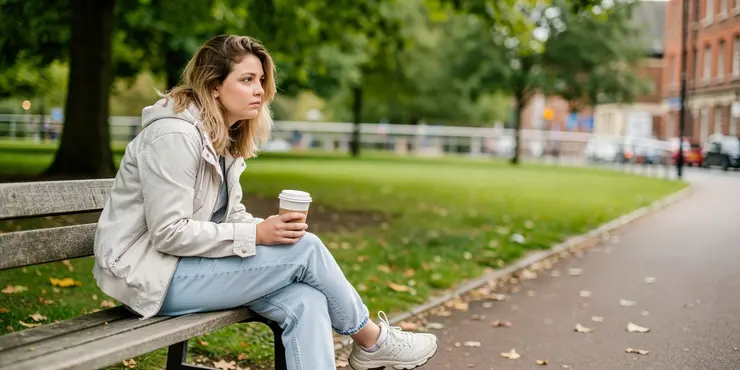
Short Films About Mental Health - Trauma PTSD
Relevance: 100%
-
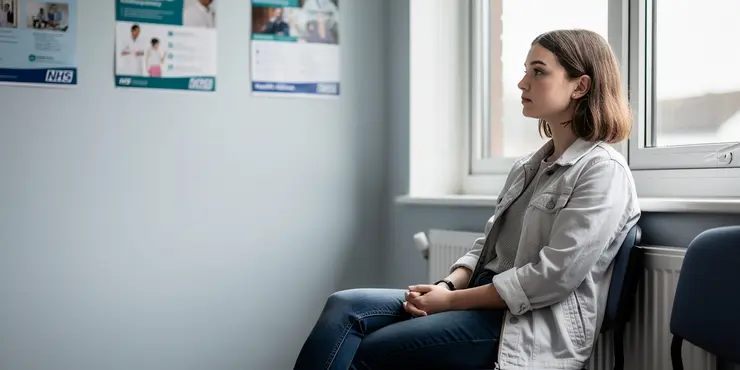
Short Films About Mental Health - Anxiety
Relevance: 49%
-
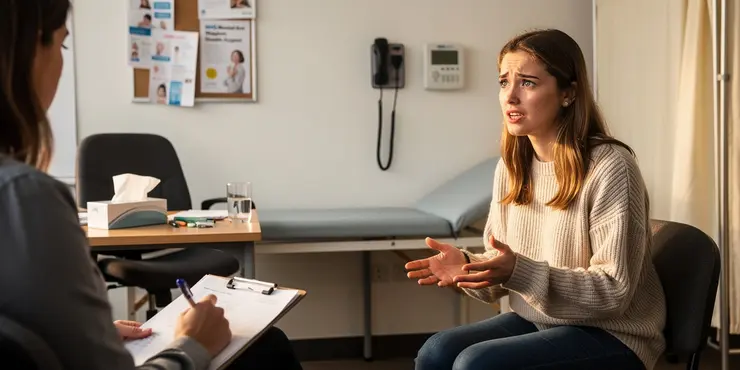
Short Films About Mental Health - Personality Disorders
Relevance: 46%
-
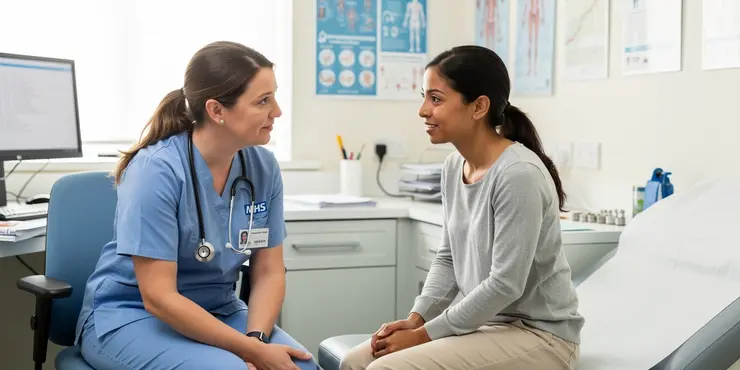
Post-traumatic stress disorder (PTSD) - Introduction
Relevance: 34%
-
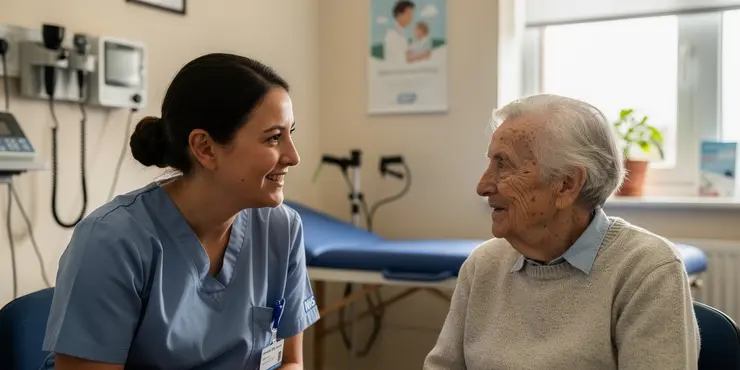
Colten Care values - montage of all 5 short films
Relevance: 29%
-
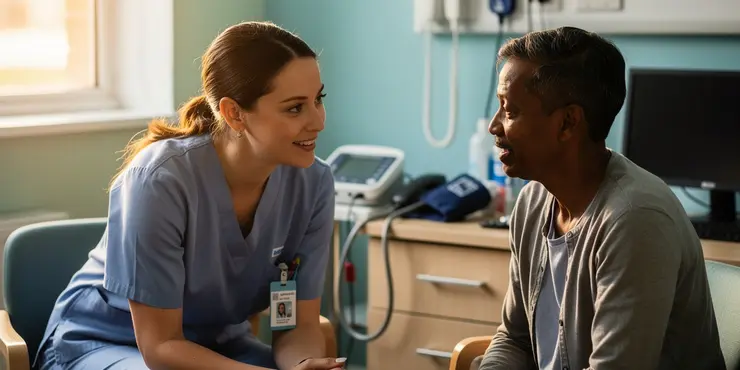
Post-traumatic stress disorder (PTSD) - Self-help guide
Relevance: 29%
-
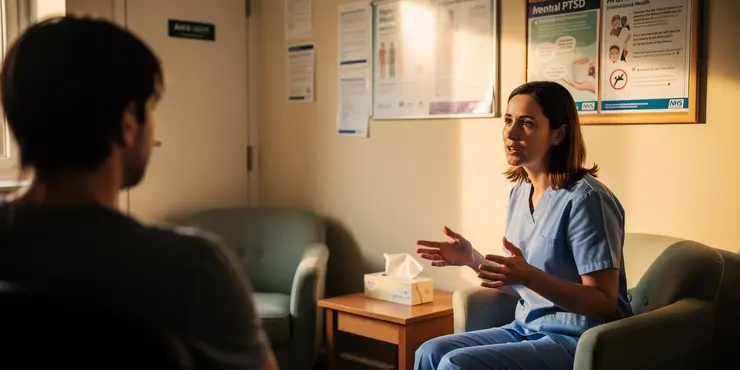
Understanding and Managing PTSD powerpoint slides with audio
Relevance: 28%
-
Can eating disorders occur with other mental health conditions?
Relevance: 24%
-
How does binge drinking affect mental health?
Relevance: 24%
-
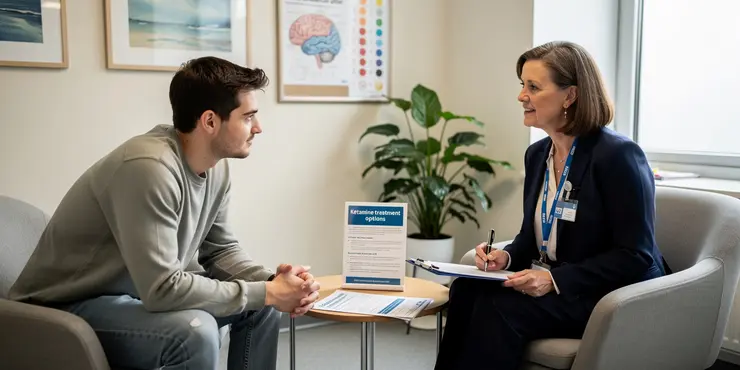
Can ketamine be prescribed for mental health conditions?
Relevance: 24%
-
Can mixed exercises improve mental health?
Relevance: 23%
-
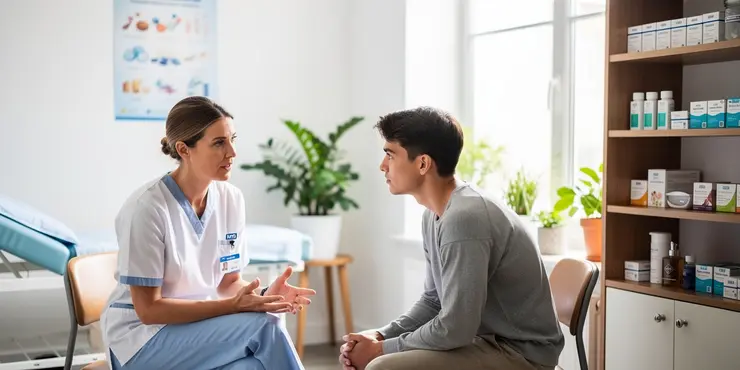
Can concussions lead to mental health issues?
Relevance: 23%
-
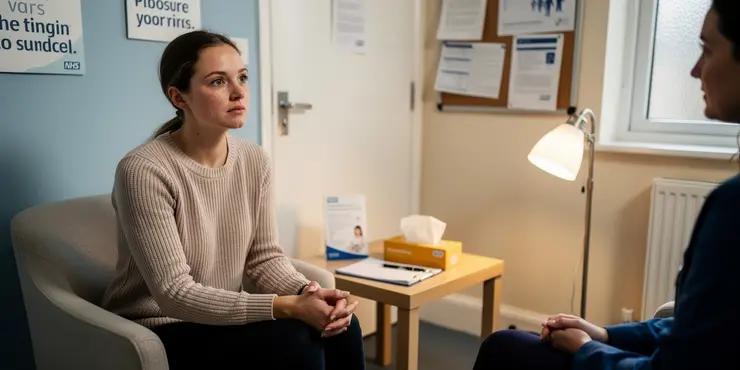
How do eating disorders affect mental health?
Relevance: 23%
-
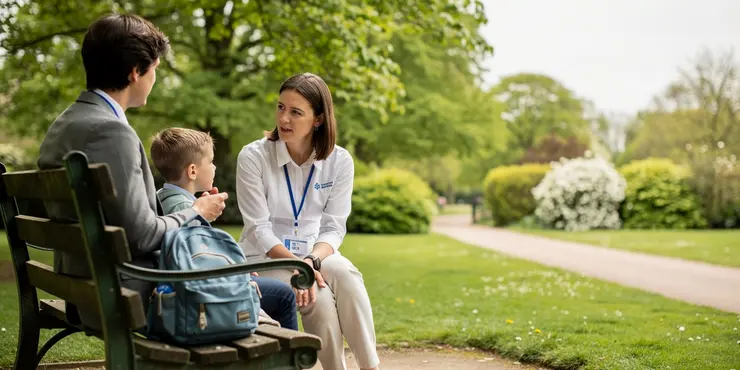
Understanding Mental Health in Children
Relevance: 23%
-
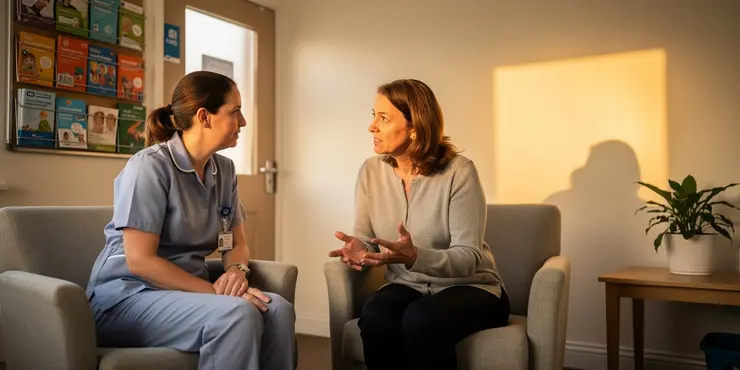
Mental Health Support Resources in the UK
Relevance: 22%
-
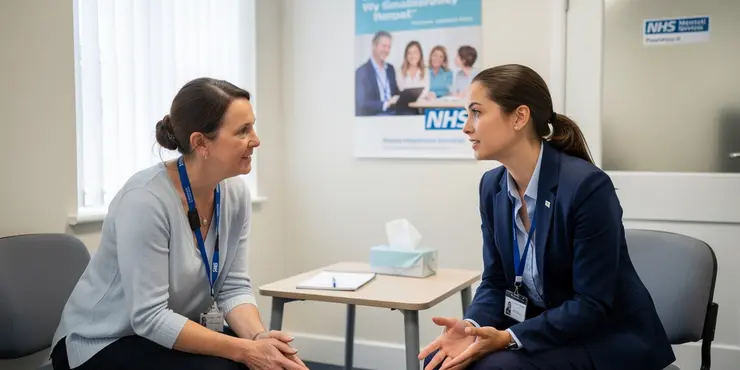
Mental Health Support Services in the UK
Relevance: 22%
-
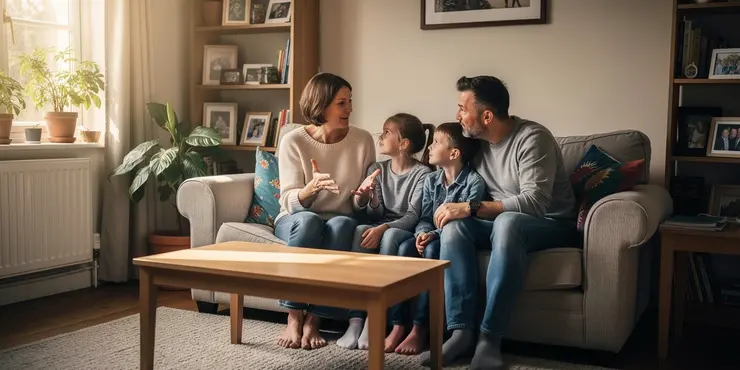
Mental Health Resources for Families
Relevance: 22%
-

Accessing Mental Health Support Resources in the UK
Relevance: 20%
-
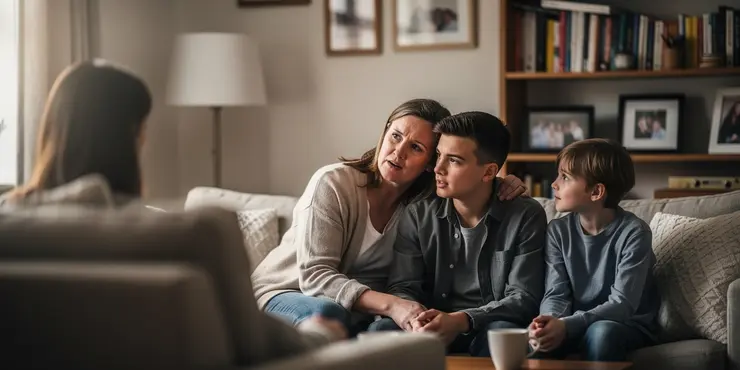
Advancements in Mental Health Resources for Families
Relevance: 20%
-
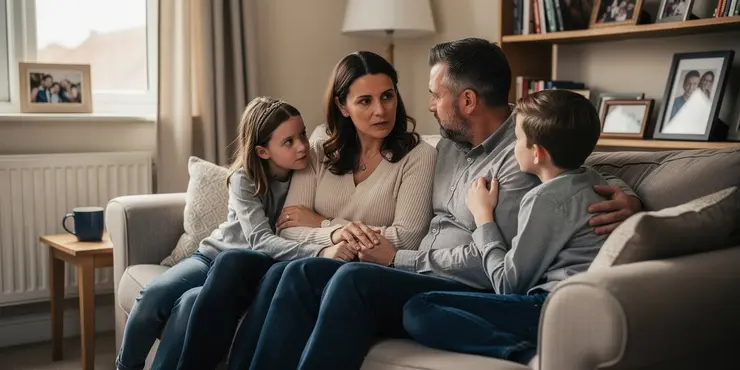
Mental Health Support Resources for Families
Relevance: 20%
-
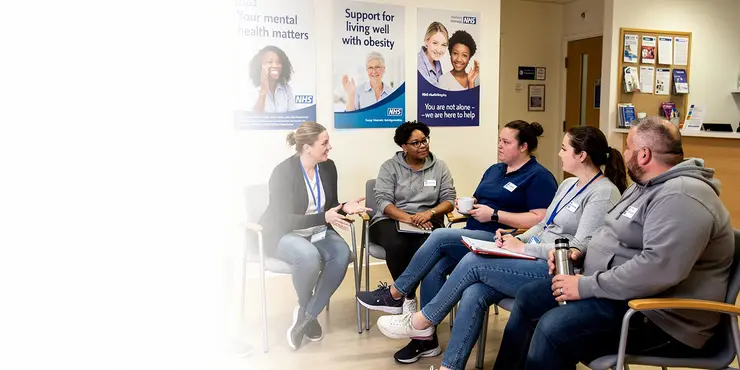
What is the impact of obesity on mental health?
Relevance: 20%
-
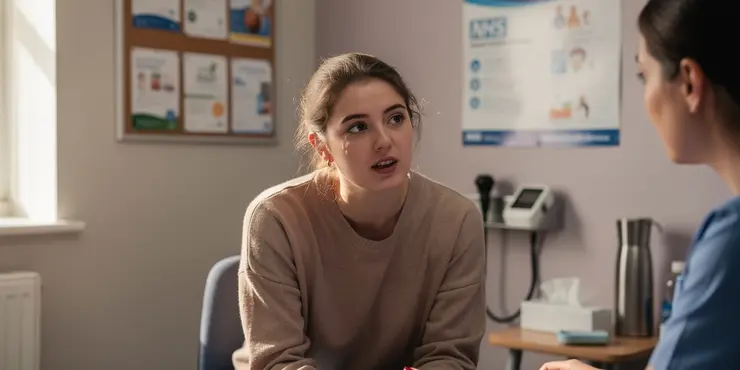
Mental Health: Laura's Story | NHS
Relevance: 20%
-
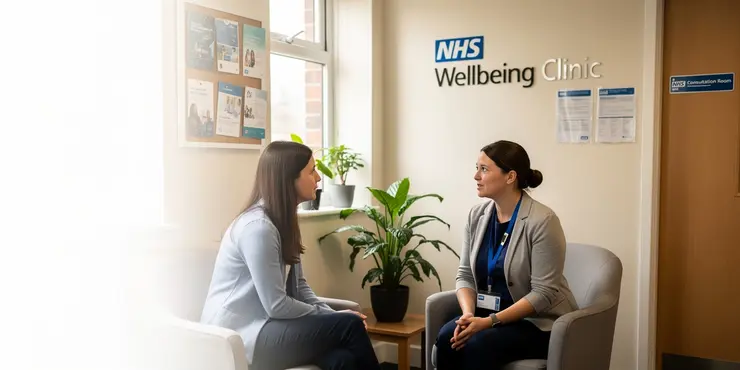
NHS Unveils Revolutionary Mental Health Support Initiative
Relevance: 20%
-
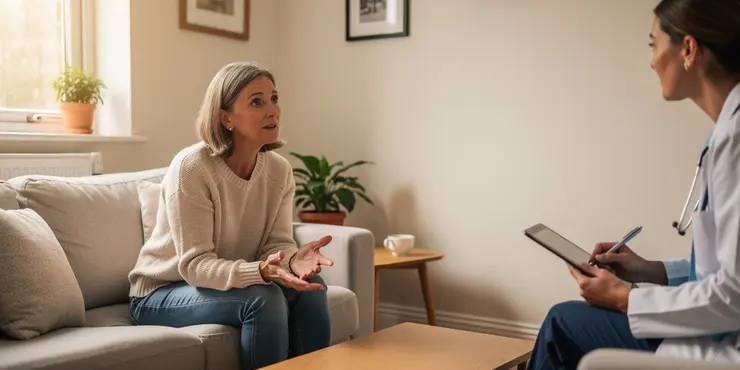
Can gut health affect mental health as one ages?
Relevance: 20%
-
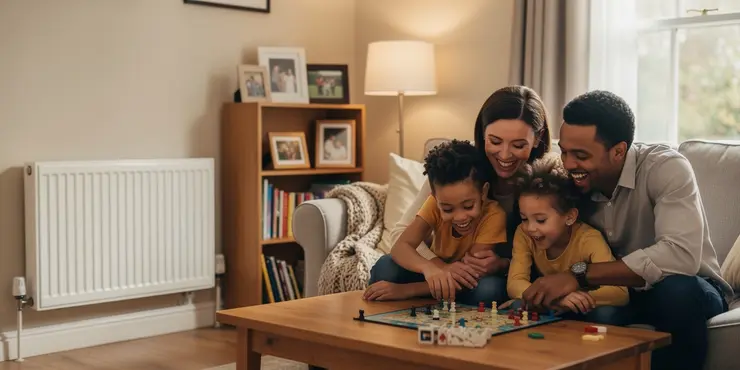
Mental Health Support for Families: Resources and Strategies
Relevance: 20%
-
Mental Health Support for Families: Resources and Guidance
Relevance: 20%
-
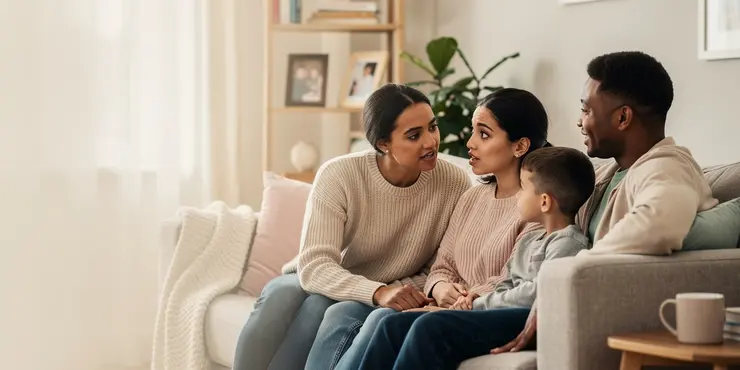
Mental Health Support for Families: Resources and Helplines
Relevance: 20%
-
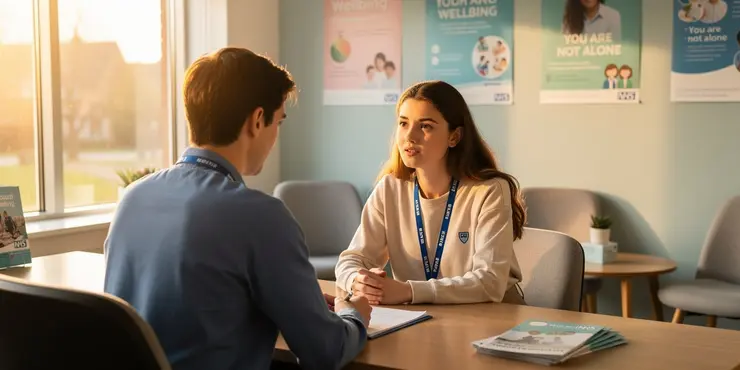
Current Challenges in Youth Mental Health Services
Relevance: 19%
-
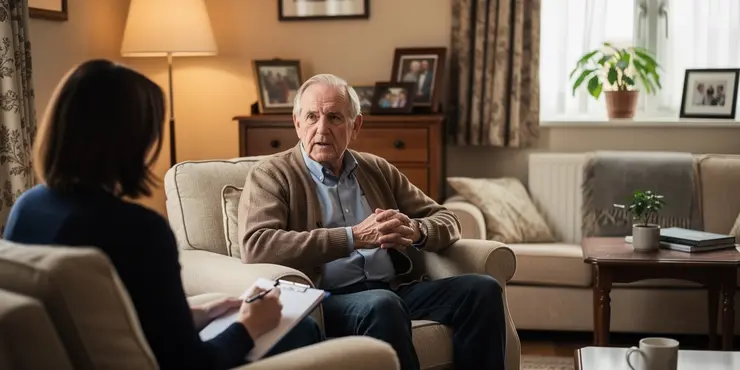
What mental health resources are available for seniors?
Relevance: 19%
-
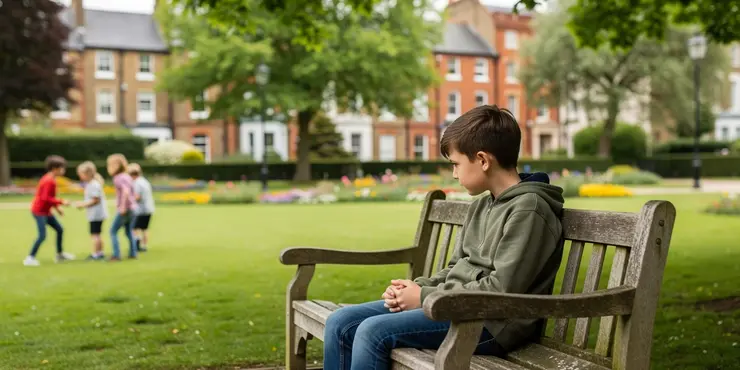
Navigating Mental Health Services for Children and Adolescents
Relevance: 19%
-
How does sugar impact mental health?
Relevance: 19%
-
Can cortisol levels impact mood and mental health?
Relevance: 19%
-
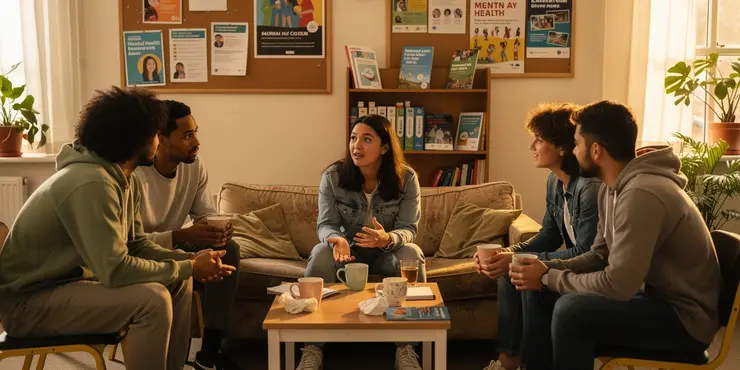
Tackling Youth Mental Health: Community Initiatives and Solutions
Relevance: 19%
-
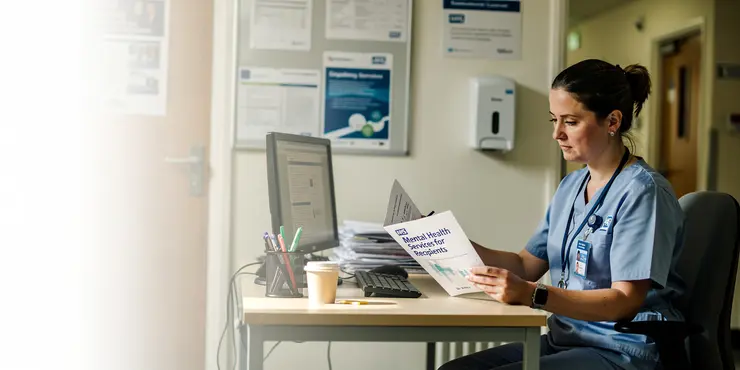
New Report Highlights Gaps in Mental Health Services for Welfare Recipients
Relevance: 19%
-
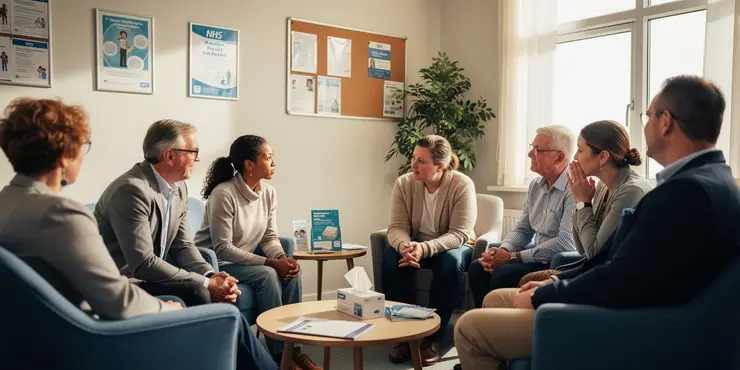
Support Services for Mental Health Amid Economic Uncertainty
Relevance: 19%
-
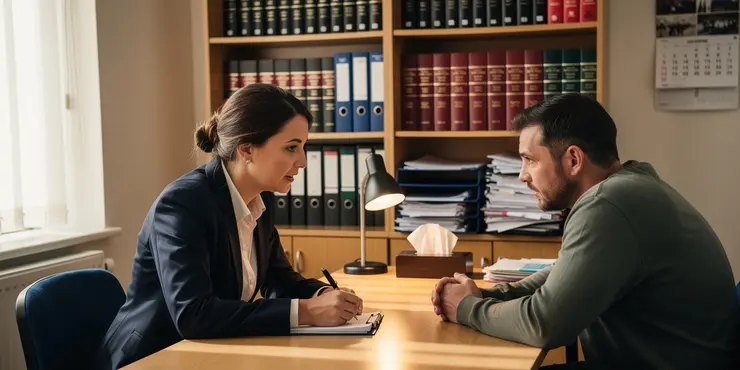
What is the role of mental health assessments in indefinite sentences?
Relevance: 19%
-
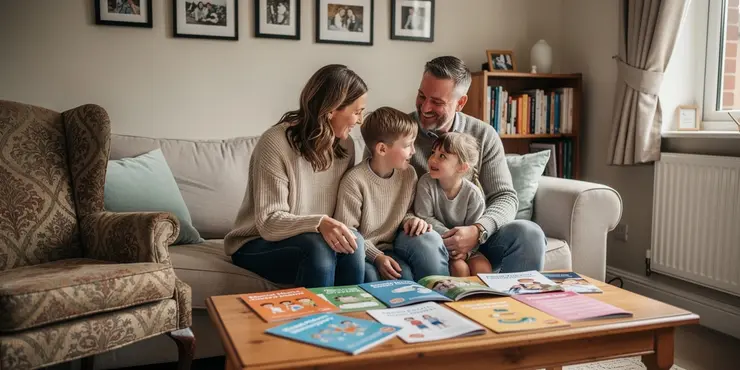
Mental Health Support for Families - Latest Resources and Guidance
Relevance: 19%
-
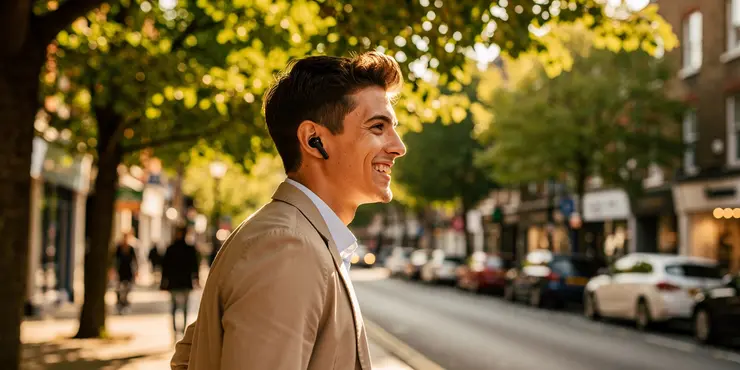
How does walking to work impact mental health?
Relevance: 18%
-
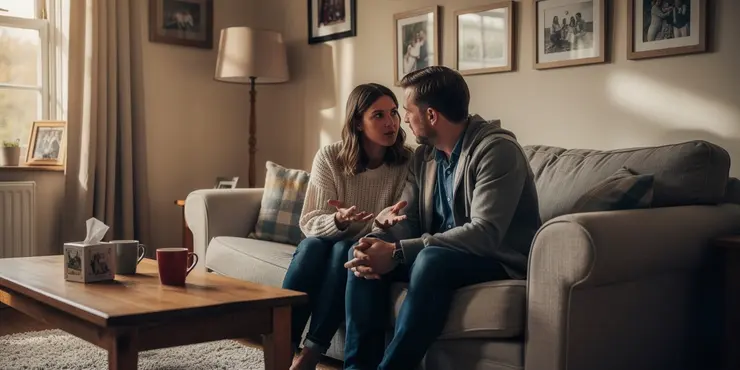
Can relationship problems be resolved to improve mental health?
Relevance: 18%
-
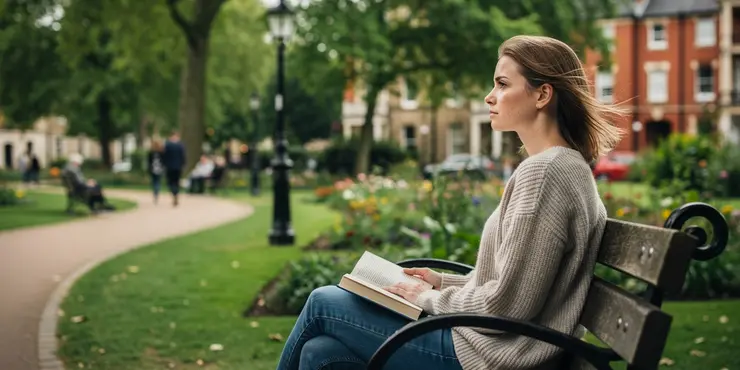
How does the loneliness epidemic impact mental health?
Relevance: 18%
Short Films About Mental Health - Trauma PTSD
The Importance of Short Films in Raising Awareness
Short films are a powerful medium for highlighting the complexities of mental health issues, particularly trauma and PTSD. In the United Kingdom, numerous filmmakers are using this art form to destigmatise mental health problems and provoke thought. These films often provide an intimate, sometimes raw, glimpse into the lives of those affected, fostering empathy and understanding among audiences.Depicting PTSD in an Authentic Manner
PTSD, or Post-Traumatic Stress Disorder, is a severe anxiety disorder triggered by traumatic events. Short films can effectively portray the intricacies of PTSD, offering a realistic depiction of the symptoms and challenges faced by sufferers. By portraying the disorder accurately, these films can help viewers better understand the daily struggles of those living with PTSD and promote a more supportive community.Educational Value for UK Audiences
The educational aspect of short films about mental health cannot be overstated. For UK audiences, these films serve as educational tools that provide crucial information about trauma and PTSD. Schools, universities, and mental health organisations can use these films in their programs to increase mental health literacy and encourage dialogue around these pressing issues.Resources and Support Highlighted in Films
Many short films about PTSD and trauma also highlight available resources and support systems in the UK. These films often include information about mental health services, hotlines, and support groups. By showcasing the resources available, they can guide individuals to seek help and ensure they are not alone in their struggles.Encouraging Conversations and Reducing Stigma
By sparking conversations about mental health, short films can play a pivotal role in reducing the stigma associated with conditions like PTSD. In the UK, where mental health issues are increasingly being recognised as critical public health concerns, these films are instrumental in changing perceptions and encouraging individuals to speak openly about their experiences.Conclusion
Short films about mental health, particularly those focusing on trauma and PTSD, offer a compelling way to raise awareness and foster understanding in the UK. By depicting these issues authentically and highlighting available resources, these films not only educate but also provide a supportive space for those affected by mental health conditions. Through the power of storytelling, they continue to make significant strides in reducing stigma and promoting mental health awareness.Short Films About Mental Health - Trauma PTSD
Why Short Films are Important
Short films can help people understand mental health better. These films show us what trauma and PTSD are like. In the UK, filmmakers are using short films to talk about mental health. This helps people learn and care more about others.What is PTSD?
PTSD means Post-Traumatic Stress Disorder. It is an anxiety problem that happens after bad events. Short films show what PTSD feels like. They help us see the hard times people with PTSD face. By showing real stories, these films help us understand and support people with PTSD.Learning from Short Films in the UK
People in the UK can learn a lot from these films. Schools and mental health groups use them to teach about trauma and PTSD. This helps us talk about mental health and learn important facts.Where to Get Help
Short films also tell us where to find help. They show mental health services, hotlines, and support groups in the UK. This helps people know they can get help and they are not alone.Talking and Understanding
These films make it easier to talk about mental health. In the UK, mental health is becoming a big topic. By watching these films, people can feel more open to talk about their feelings and ask for help.Conclusion
Short films about mental health help people in the UK learn and care more. They show real stories about trauma and PTSD. These films help us learn, share, and support each other. By telling stories, they help break down the stigma and make mental health something we all talk about. ```Frequently Asked Questions
What is PTSD?
PTSD stands for Post-Traumatic Stress Disorder. It is a mental health condition triggered by experiencing or witnessing a traumatic event.
What are the common symptoms of PTSD?
Common symptoms include flashbacks, nightmares, severe anxiety, and uncontrollable thoughts about the event.
Can PTSD be treated?
Yes, PTSD can be treated through various methods such as therapy, medication, and support groups.
How is trauma different from PTSD?
Trauma refers to the emotional response to a distressing event, while PTSD is a long-term condition that can develop after experiencing trauma.
Are short films effective in raising awareness about mental health?
Yes, short films can be an effective medium to raise awareness and educate people about mental health issues through engaging and relatable stories.
What role does the UK healthcare system play in supporting those with PTSD?
The UK healthcare system offers various support services including therapy, counselling, and medication for those diagnosed with PTSD.
How can friends and family support someone with PTSD?
They can offer emotional support, help with finding professional treatment, and create a safe and understanding environment.
Is there a stigma associated with PTSD?
Yes, there can be stigma and misunderstanding about PTSD, which is why raising awareness through education and media is important.
Can anyone develop PTSD?
Yes, PTSD can affect anyone, regardless of age, gender, or background, if they experience trauma.
How can short films be used in mental health education?
Short films can be used in educational settings, social media campaigns, and community events to illustrate mental health issues and promote empathy and understanding.
What are some common misconceptions about PTSD?
Common misconceptions include the belief that PTSD only affects soldiers, or that it’s a sign of weakness rather than a legitimate medical condition.
Are there any particular short films about PTSD that are recommended?
There are many short films that effectively portray PTSD. Some notable mentions include 'Headspace' and 'Aftermath'.
Where can I find support if I think I have PTSD?
Support can be found through GP services, mental health charities like Mind and SANE, and NHS mental health services.
What should I do if a short film triggers my PTSD symptoms?
If a film triggers your PTSD symptoms, it is important to stop watching, practice grounding techniques, and seek support from a mental health professional or a trusted person.
Can watching short films about PTSD be therapeutic?
For some, watching films about PTSD can be therapeutic as it helps them feel seen and understood. However, for others, it might be triggering and should be approached with caution.
What is PTSD?
PTSD stands for Post-Traumatic Stress Disorder. It is a mental health problem. People can get PTSD after something very scary or bad happens to them. This could be an accident, a natural disaster like a flood, or something violent.
There are a few important things to know about PTSD:
- It can make people feel scared or anxious, even when they are safe.
- People with PTSD might have bad dreams or memories about the scary event.
- They might try to stay away from places or things that remind them of what happened.
- It can make it hard for them to sleep or relax.
If you think you or someone else might have PTSD, it is good to talk to a doctor or a counselor. They can help.
Some helpful things to do are:
- Talking to someone you trust about how you feel.
- Doing activities that make you happy and calm.
- Practicing deep breathing to relax.
PTSD means Post-Traumatic Stress Disorder. It is a problem people can have in their mind after seeing or going through something scary or bad.
What signs show PTSD?
Common signs include:
- Remembering the scary thing again and again
- Bad dreams
- Feeling very worried
- Thoughts about what happened that won't stop
If you need help, you can:
- Talk to someone you trust
- Write down your feelings in a diary
- Try to do relaxing activities like deep breathing
- Use apps or tools that can help you feel calm
Can PTSD be treated?
Yes, PTSD can be treated. PTSD stands for Post-Traumatic Stress Disorder. It is a condition that happens after something very scary or upsetting. Therapy can help. Talking to a doctor or therapist is good. There are medicines that can help too. People can feel better with time and care.
Here are some things that might help:
- Talk to someone you trust.
- Write down your feelings in a journal.
- Draw or paint to express your emotions.
- Practice deep breathing to calm down.
- Try gentle exercises like walking or stretching.
Yes, PTSD can be helped in different ways, like talking with a therapist, taking medicine, and joining support groups.
What is the difference between trauma and PTSD?
Trauma: Trauma happens when something scary or bad happens to you. It might make you feel upset or sad. Over time, many people feel better.
PTSD: PTSD stands for Post-Traumatic Stress Disorder. It is when the bad feelings from trauma do not go away and cause problems like bad dreams or feeling scared all the time.
Tips to help: - Talk to someone you trust about how you feel. - Try drawing or writing about your feelings. - Take deep breaths if you feel upset.
Trauma is how you feel after something really bad happens.
PTSD is a problem that can happen if you still feel upset for a long time after the bad thing.
Tools that can help are talking to someone you trust or drawing pictures about how you feel.
Do short films help people understand mental health better?
Yes, short films are great for teaching people about mental health. They use fun and easy-to-understand stories.
How does the UK healthcare system help people with PTSD?
The UK healthcare system helps people with PTSD feel better. PTSD is a strong feeling of fear after something very scary happens. Doctors and nurses can talk to people about their feelings. They can give medicine if needed. Special talking treatments like therapy can also help. If you or someone you know has PTSD, you can visit a doctor for support.
To understand more, you can:
- Ask a doctor to explain in simple words.
- Use picture books about feelings.
- Talk to someone you trust.
The UK's healthcare system helps people in different ways. If you have PTSD (a strong fear because of a past event), you can get help like talking to a therapist, counseling, or medicine.
How can friends and family help someone with PTSD?
Here are some simple ways to help:
- Listen: Be there to listen when they want to talk.
- Be kind: Show understanding and be patient with them.
- Learn: Read books or watch videos about PTSD to understand it better.
- Encourage: Support them to see a doctor or therapist.
- Spend time: Do fun activities together that they enjoy.
Helpful tools:
- Use pictures or drawings to help explain things.
- Create a calm and quiet space for them.
- Help them make a simple schedule for daily activities.
They can help by being kind and supportive. They can also help find doctors or counselors. They make sure everyone feels safe and understood.
Do people think badly about PTSD?
Sometimes people have bad thoughts about PTSD.
PTSD means Post-Traumatic Stress Disorder. This happens after seeing scary things.
It's important to know that having PTSD is not bad. It's a way for your brain to handle fear.
If you want to learn more, you can:
- Talk to someone you trust, like a family member or friend.
- Use picture books or videos to understand better.
- Ask a teacher or helper at school.
Yes, some people do not understand PTSD, and this can lead to problems. It is important to teach people about it using books and TV shows.
Can anyone get PTSD?
Yes, anyone can get PTSD. PTSD stands for Post-Traumatic Stress Disorder. It can happen after something very scary or bad happens.
If you find reading hard, try:
- Using audiobooks to listen instead of reading.
- Talking to someone about what you read to help understand it better.
- Reading with a friend or family member to help explain words you find tricky.
Yes, PTSD can happen to anyone. It doesn't matter how old you are, if you are a boy or girl, or where you come from. If you go through something really scary, you might get PTSD.
How can short films help teach about mental health?
Short films can help teach about mental health. They can be shown in schools, online, and at local events. These films help people understand feelings and care about others.
What are some things people often get wrong about PTSD?
Some people think only soldiers get PTSD, but that's not true. PTSD is a real medical problem. It is not a sign of being weak.
Can you recommend any short films about PTSD?
PTSD means Post-Traumatic Stress Disorder. This happens when someone has been through something very scary.
Here are some ways to learn about PTSD through films:
- Watch short films. They are like movies, but much shorter. They are easy to watch and understand.
- If you need help with reading, ask someone to read with you.
- Use subtitles. They show the words people say on the screen if you find it hard to hear or understand.
These tools can make learning about PTSD through short films easier and more fun!
There are lots of short movies that show what PTSD is like. Two good ones are 'Headspace' and 'Aftermath'.
Who can help me if I think I have PTSD?
If you think you have PTSD, there are people who can help.
Talk to a Doctor: A doctor can listen to you and give you advice.
Find a Therapist: A therapist can help you talk about your feelings.
Call a Helpline: You can call a helpline to talk to someone who understands.
Remember, it is okay to ask for help. You are not alone.
You can get help from your doctor, or GP. You can also get help from charities that support people with mental health problems, like Mind and SANE. The NHS also has services to help with mental health.
What can I do if a short film makes my PTSD worse?
If a movie makes your PTSD symptoms come back, stop watching it. Try to focus on where you are and how you feel to calm down. You can also talk to a therapist or someone you trust to help you feel better.
Can watching short films about PTSD help people feel better?
PTSD stands for Post-Traumatic Stress Disorder. Some people get PTSD after something very scary or bad happens to them.
Watching short films about PTSD might help people understand their feelings and feel better.
Here are some things you can do to help understand the films:
- Watch the film with a friend or family member. Talk about what you see.
- Use headphones to hear the film better.
- Pause the film if you need more time to think.
- Ask a teacher or helper if you have questions.
Remember, it's always good to talk to someone if you're feeling sad or worried. They can help.
For some people, watching movies about PTSD can help them feel understood. But for others, these movies might be upsetting. Be careful when watching them.
Useful Links
This website offers general information and is not a substitute for professional advice.
Always seek guidance from qualified professionals.
If you have any medical concerns or need urgent help, contact a healthcare professional or emergency services immediately.
Some of this content was generated with AI assistance. We’ve done our best to keep it accurate, helpful, and human-friendly.
- Ergsy carfully checks the information in the videos we provide here.
- Videos shown by Youtube after a video has completed, have NOT been reviewed by ERGSY.
- To view, click the arrow in centre of video.
- Most of the videos you find here will have subtitles and/or closed captions available.
- You may need to turn these on, and choose your preferred language.
- Go to the video you'd like to watch.
- If closed captions (CC) are available, settings will be visible on the bottom right of the video player.
- To turn on Captions, click settings .
- To turn off Captions, click settings again.
More Items From Ergsy search
-

Short Films About Mental Health - Trauma PTSD
Relevance: 100%
-

Short Films About Mental Health - Anxiety
Relevance: 49%
-

Short Films About Mental Health - Personality Disorders
Relevance: 46%
-

Post-traumatic stress disorder (PTSD) - Introduction
Relevance: 34%
-

Colten Care values - montage of all 5 short films
Relevance: 29%
-

Post-traumatic stress disorder (PTSD) - Self-help guide
Relevance: 29%
-

Understanding and Managing PTSD powerpoint slides with audio
Relevance: 28%
-
Can eating disorders occur with other mental health conditions?
Relevance: 24%
-
How does binge drinking affect mental health?
Relevance: 24%
-

Can ketamine be prescribed for mental health conditions?
Relevance: 24%
-
Can mixed exercises improve mental health?
Relevance: 23%
-

Can concussions lead to mental health issues?
Relevance: 23%
-

How do eating disorders affect mental health?
Relevance: 23%
-

Understanding Mental Health in Children
Relevance: 23%
-

Mental Health Support Resources in the UK
Relevance: 22%
-

Mental Health Support Services in the UK
Relevance: 22%
-

Mental Health Resources for Families
Relevance: 22%
-

Accessing Mental Health Support Resources in the UK
Relevance: 20%
-

Advancements in Mental Health Resources for Families
Relevance: 20%
-

Mental Health Support Resources for Families
Relevance: 20%
-

What is the impact of obesity on mental health?
Relevance: 20%
-

Mental Health: Laura's Story | NHS
Relevance: 20%
-

NHS Unveils Revolutionary Mental Health Support Initiative
Relevance: 20%
-

Can gut health affect mental health as one ages?
Relevance: 20%
-

Mental Health Support for Families: Resources and Strategies
Relevance: 20%
-
Mental Health Support for Families: Resources and Guidance
Relevance: 20%
-

Mental Health Support for Families: Resources and Helplines
Relevance: 20%
-

Current Challenges in Youth Mental Health Services
Relevance: 19%
-

What mental health resources are available for seniors?
Relevance: 19%
-

Navigating Mental Health Services for Children and Adolescents
Relevance: 19%
-
How does sugar impact mental health?
Relevance: 19%
-
Can cortisol levels impact mood and mental health?
Relevance: 19%
-

Tackling Youth Mental Health: Community Initiatives and Solutions
Relevance: 19%
-

New Report Highlights Gaps in Mental Health Services for Welfare Recipients
Relevance: 19%
-

Support Services for Mental Health Amid Economic Uncertainty
Relevance: 19%
-

What is the role of mental health assessments in indefinite sentences?
Relevance: 19%
-

Mental Health Support for Families - Latest Resources and Guidance
Relevance: 19%
-

How does walking to work impact mental health?
Relevance: 18%
-

Can relationship problems be resolved to improve mental health?
Relevance: 18%
-

How does the loneliness epidemic impact mental health?
Relevance: 18%


